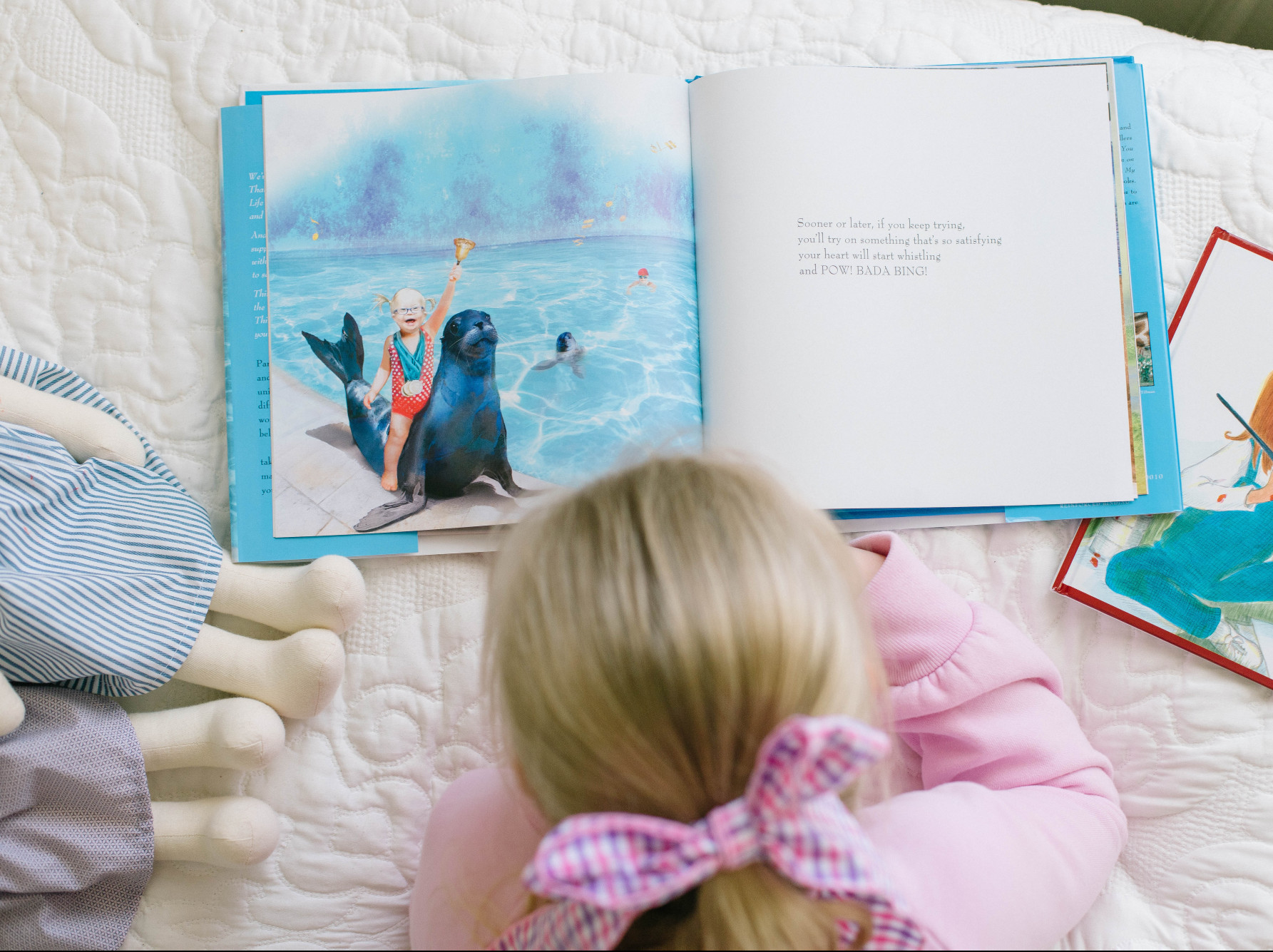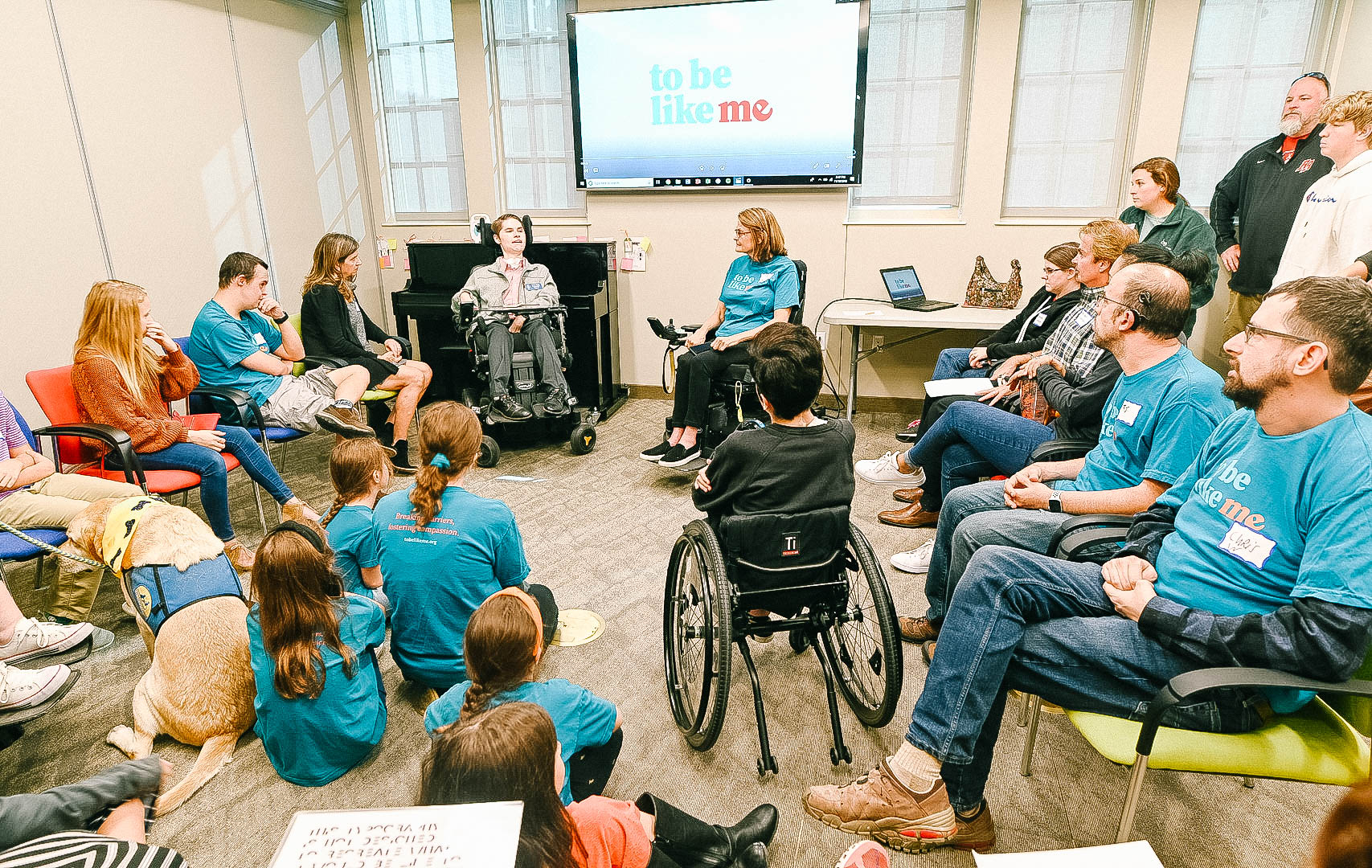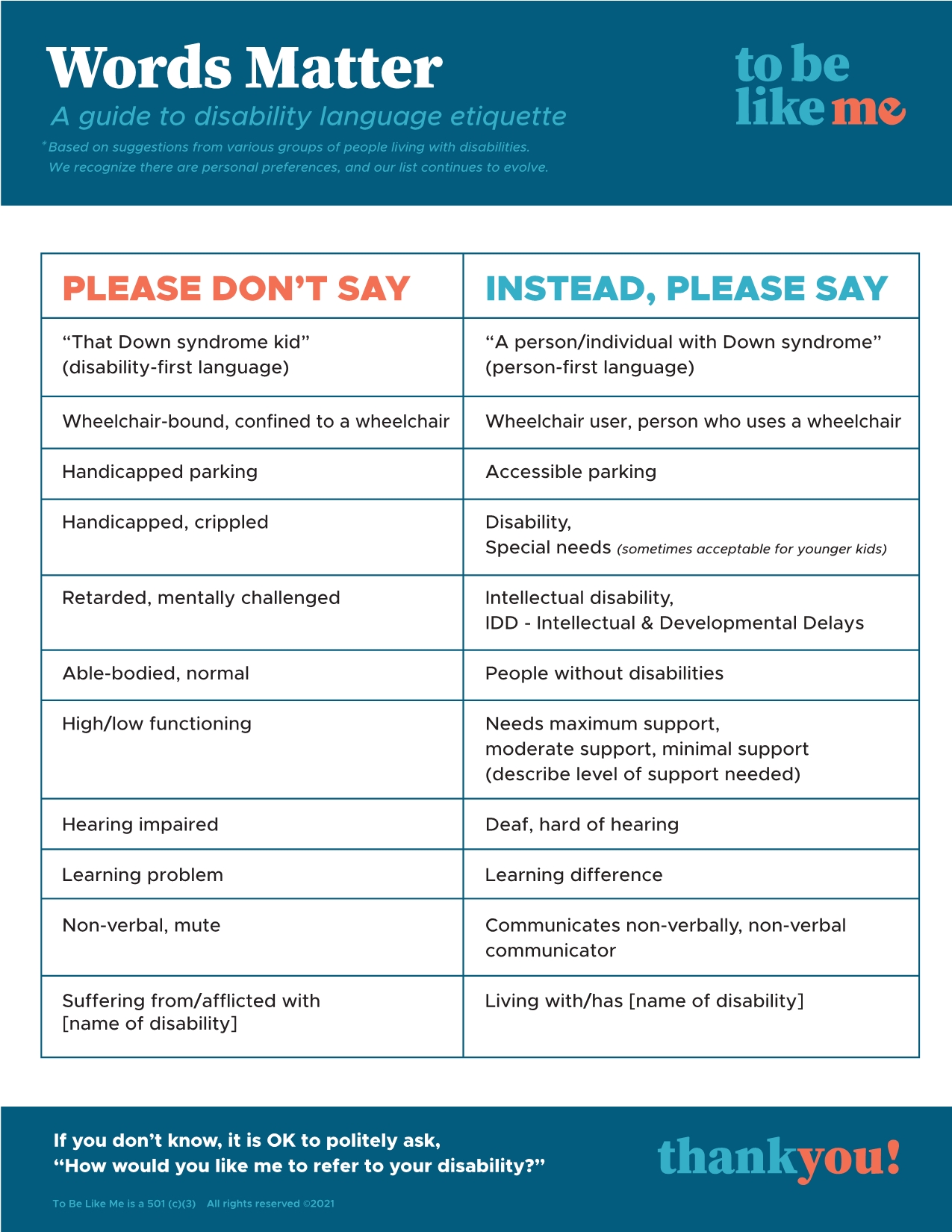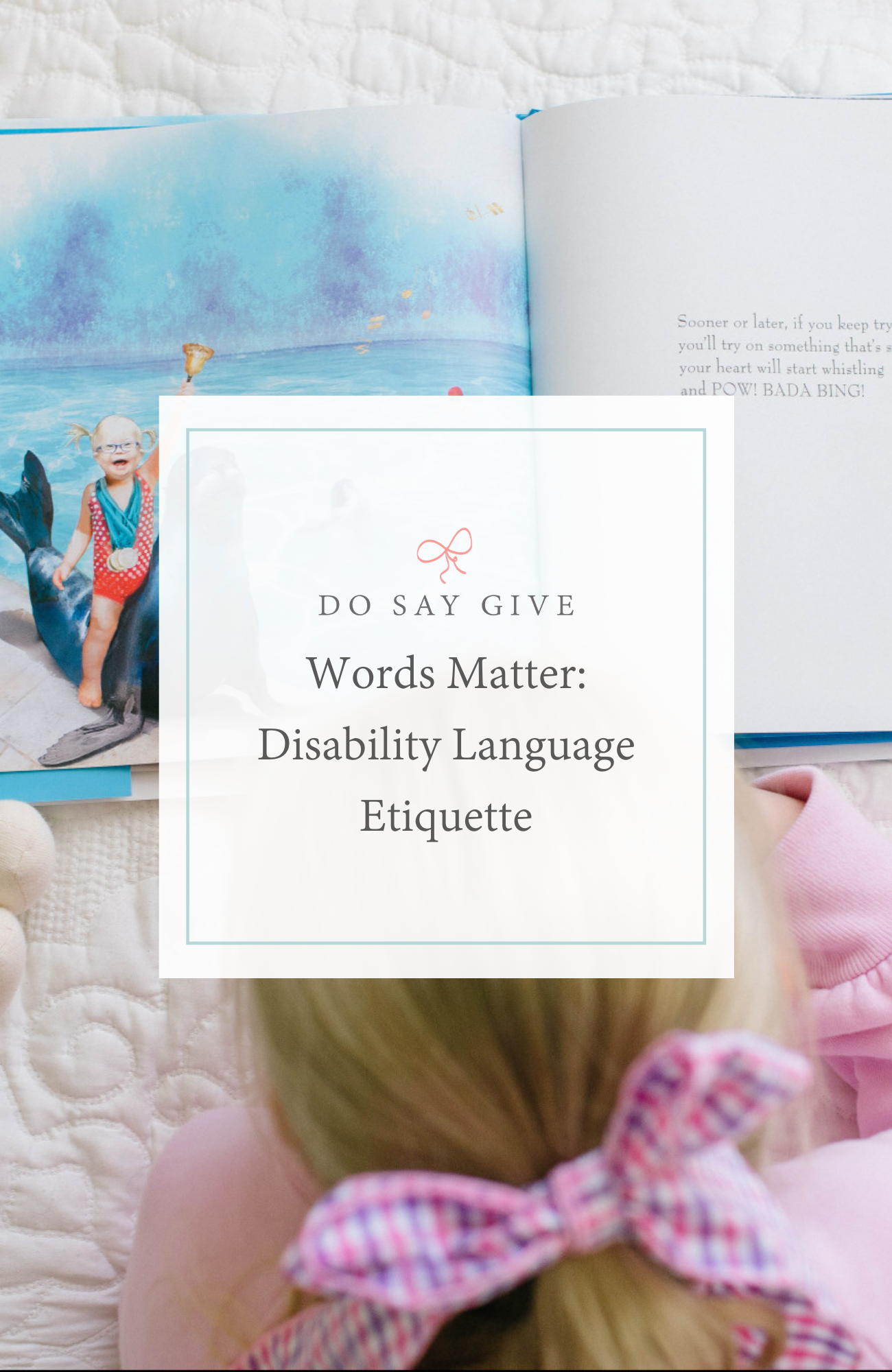To be gracious is to be considerate. And one of the ways we can be most considerate is with the language we use on a daily basis and the words we teach our children. Today we are partnering with To Be Like Me for a Q&A to discuss inclusive language, specifically when it comes to our friends and neighbors with disabilities.
To Be Like Me was founded by Hollis Owens with the intention “to break down the barriers that exist for those with disabilities and shed light on the positive impact of inclusion, ignite compassion, and foster awareness of the unique abilities of others.” The non-profit offers in-person and online disability awareness programs geared towards school-aged kids, graduate students, and special groups.
While every individual with a disability has their own idea and opinion about how to talk about and refer to their disability, To Be Like Me offers general guidelines and accepted best practices when it comes to inclusive language. I’m so thankful that To Be Like Me Leader, Lauren Taylor, answered some commonly asked about inclusive language!
Lauren is a 24-year-old with Congenital Muscular Dystrophy. She is currently a master’s student at the University of North Texas in the Rehabilitation Counseling program, where she is studying to specialize in working with people with disabilities. Lauren was crowned Ms. Wheelchair Texas in 2019, an advocacy title she used to advocate for Universal Design and accessibility across Texas.
Q: Lauren, thanks so much for joining us! Tell us: what is “inclusive” language?
Using inclusive language means speaking with terms that accurately describe a person in a respectful way. When speaking to or about someone with a disability, it is best to speak using person-first language. Person-first language simply means to address the person first, before their disability. For example, when describing someone in a wheelchair, you would not say “that wheelchair person,” or use terms like “wheelchair bound,” Instead, say, “person who uses a wheelchair.” When you identify the person before their disability, it signals that you see them as a human being and not just their situation or obstacles.
However, some people prefer identity-first language, in which they do want you to refer to their disability by using terms like “disabled person.” A great example of this is the Autistic Community. Oftentimes, those who have Autism prefer to be called “Autistic” out of pride for their identity and culture. Because there is such a mixed bag of what people prefer, it is typically okay to ask the person you are interacting with which language they would like you to use.
Q: Another common question is “Why does it matter what I say?”
Believe it or not, the old phrase “sticks and stones can break my bones, but words can never hurt me” is simply not true. The way we speak about others can deeply affect how they view themselves.
Most people do not use the wrong language on purpose, but it is important to be thoughtful and know when language is offensive and disrespectful. When negative language is used to talk about someone with a disability, it instills the idea that having a disability is a bad thing.
Q: How are we supposed to know what language is offensive or not?
The truth is, we don’t expect you to know what language is offensive or not first-hand. This is something that has to be learned because it is not commonly taught. To be honest, I didn’t even learn about appropriate language until my college courses, and I have a disability! It can be easy to say the first thing that comes to mind when interacting with someone different than you, but once you learn the appropriate language, the course of conversation can go from a negative interaction to a positive one.
Q: What if I don’t know the right thing to say?
As a Leader with To Be Like Me, this is the type of education we provide to our participants.
Don’t let the fear of saying the wrong thing keep you from interacting with someone. What is important is a willingness to learn what you don’t know, and pass that information on to others.
A good way to avoid using the wrong words altogether is to simply ask the person you are speaking with what their word preferences are. However, this does not mean they will have an answer for you, so it is important to respect that as an answer as well.
Q: What do I do if I hear someone else saying something that’s not kind?
If you hear someone use language that is not kind or acceptable, it is important to speak up. We must work together to bring awareness to current acceptable inclusive language. Many times, people just don’t know, and we can educate to help make a difference. It can be hard, but we hope you will be willing to speak up and make a difference!
Q: Do you have any “pet peeves” about this topic?
- When people apologize for asking questions. I love answering them!
- When people use the “R” word.
- When parents pull their kids away from me and tell them not to stare or ask me things.
Q: What is an example of a good and/or bad situation that you have experienced with inclusive language?
- Good: when my therapist asked me which language I would like him to use when we talk about my disability.
- Good: when I hear “please stand if you are able” before the pledge of allegiance or national anthem.
- Bad: when I hear people, especially in a disability-focused profession, use terms like “wheelchair-bound” to describe me.
Q: If we could leave readers with 3 suggestions to implement in their inclusive vocabulary, what would they be?
- Say hello! Conversations have to start somewhere, and hello is a great way to open one up.
- Advocate for appropriate language if you hear someone using inappropriate language.
- Don’t be afraid to engage and ask questions! Learn and educate others as you go!
Thank you, Lauren, for your insight and encouragement. To learn more about To Be Like Me click here and their programs, click here. Also bookmark this helpful what to say/what not to say sheet:
photo and graphic: To Be Like Me







I found this article very helpful. I work in a field that includes children with special needs and it is always a good reminder which language people prefer, and that it’s ok to ask if you’re not sure! I hope this helps parents who are sometimes embarrassed when young children ask questions loudly or pointedly to people who may appear “different”.
Yes a good reminder! Thank you!